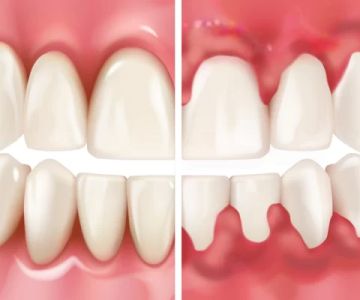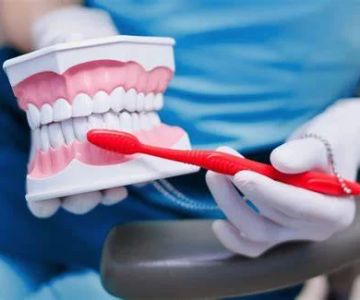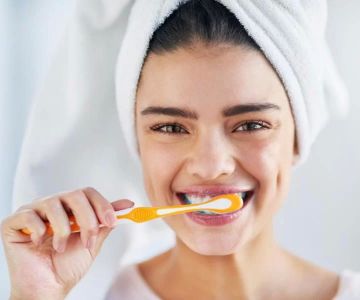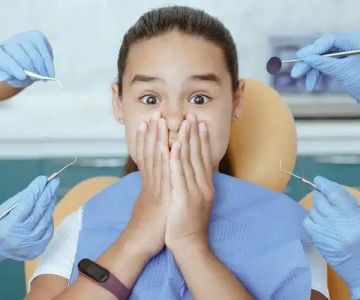Understanding the Connection Between Oral Hygiene and Nutrition
Poor oral hygiene is often underestimated when considering overall health, but its impact on nutrition is profound. In the United States, millions suffer from dental problems that hinder their ability to eat properly, leading to a cascade of nutritional deficiencies and health issues. The mouth is the gateway to the digestive system, and when dental health falters, it disrupts the entire nutritional process from food intake to nutrient absorption.
1. How Poor Oral Hygiene Impacts Eating Habits
One of the most immediate effects of inadequate dental care is pain and discomfort in the mouth, making it difficult to chew and swallow food. Conditions such as cavities, gum disease, and tooth loss can cause significant pain, forcing individuals to avoid certain foods, especially those that are hard or crunchy like fruits, vegetables, and nuts. This avoidance limits the variety of nutrients consumed and often leads to a diet high in processed, softer foods that lack essential vitamins and minerals.
Consider the story of Sarah, a 58-year-old woman from Ohio, who struggled with severe gum disease. She found herself unable to enjoy her favorite fresh salads or crunchy snacks without pain. Over time, Sarah’s diet became restricted mainly to soft, carbohydrate-heavy foods, contributing to weight gain and vitamin deficiencies. Her case highlights the real-world impact of poor oral health on nutritional choices.
2. Effects on Nutrient Absorption and Digestion
Chewing is the first step of digestion, breaking down food into manageable pieces and mixing it with saliva, which contains enzymes crucial for digestion. Poor oral hygiene that leads to tooth decay or gum disease can compromise chewing efficiency. Inefficient chewing can result in larger food particles entering the stomach, making digestion less effective and potentially causing gastrointestinal issues.
Furthermore, oral infections can cause systemic inflammation that affects the digestive tract’s ability to absorb nutrients. Chronic periodontal disease, for example, has been linked to increased inflammation markers in the body, which can impair nutrient absorption and metabolism, compounding malnutrition risks.
3. The Role of Oral Health in Preventing Nutritional Deficiencies
Maintaining good oral hygiene ensures that teeth and gums are healthy, allowing for a diverse and balanced diet rich in essential nutrients. Regular brushing, flossing, and dental check-ups help prevent cavities and gum disease, preserving natural teeth for proper chewing. This maintenance is particularly critical for older adults, who are at increased risk of both dental issues and nutritional deficiencies.
Studies show that individuals with good oral health consume higher amounts of dietary fiber, vitamins A, C, D, and calcium, which are crucial for bone health, immune function, and overall well-being. The synergy between oral health and nutrition is undeniable — one supports the other, creating a foundation for long-term health.
4. Addressing Poor Oral Hygiene to Improve Nutrition
Addressing oral health issues promptly is vital to restoring nutritional balance. Dental professionals recommend a comprehensive approach that includes professional cleaning, treatment of infections, and education on proper oral care habits. Dietitians and healthcare providers also play a role by recommending nutrient-dense foods that are easier to chew for those with dental limitations.
Innovative care solutions such as dental implants or dentures can restore function for those who have lost teeth, enabling a return to a more varied diet. Moreover, community health programs in the US increasingly emphasize the importance of oral health education to reduce the prevalence of nutrition-related diseases caused by poor oral hygiene.
5. Why Oral Hygiene Should Be Part of Overall Wellness
The intricate link between oral hygiene and nutrition demonstrates why dental health should not be isolated from general health discussions. Poor oral hygiene can lead to malnutrition, weakened immunity, and chronic diseases, making it a public health concern that needs attention beyond the dental chair.
As awareness grows, patients like Sarah are encouraged to seek early intervention and integrate dental care with nutritional counseling. For anyone experiencing difficulties with eating due to dental pain or tooth loss, consulting with a professional is essential to break the cycle of poor oral hygiene and compromised nutrition.
For personalized advice and professional oral health services that support your nutrition and overall wellness, visit Dentistry Toothtruth. Their expert team offers tailored solutions to help you maintain a healthy mouth and a balanced diet, ensuring your quality of life remains optimal.







 Westgate Dental Arts3.0 (2 review)
Westgate Dental Arts3.0 (2 review) Coventry Family Dental4.0 (247 review)
Coventry Family Dental4.0 (247 review) Familia Dental3.0 (1028 review)
Familia Dental3.0 (1028 review) Dr. Daniel S. Fife, DDS4.0 (31 review)
Dr. Daniel S. Fife, DDS4.0 (31 review) Dentistry At Suburban Square: Michael I. Wollock, DMD4.0 (1228 review)
Dentistry At Suburban Square: Michael I. Wollock, DMD4.0 (1228 review) Comfort Care Dental4.0 (1156 review)
Comfort Care Dental4.0 (1156 review) The Importance of Oral Health Education During Pregnancy for a Healthy Pregnancy
The Importance of Oral Health Education During Pregnancy for a Healthy Pregnancy Why Skipping Dental Checkups Can Lead to Bigger Oral Health Problems
Why Skipping Dental Checkups Can Lead to Bigger Oral Health Problems Best Tips for Brushing Your Teeth Properly for Healthy Gums: Essential Techniques for Oral Health
Best Tips for Brushing Your Teeth Properly for Healthy Gums: Essential Techniques for Oral Health Advantages of Porcelain Dental Restorations
Advantages of Porcelain Dental Restorations How Can Diabetes Cause Tooth and Gum Problems? Preventing and Managing Oral Health Issues
How Can Diabetes Cause Tooth and Gum Problems? Preventing and Managing Oral Health Issues Healthy Habits for Promoting Good Oral Health and Hygiene: Tips for a Healthy Smile
Healthy Habits for Promoting Good Oral Health and Hygiene: Tips for a Healthy Smile